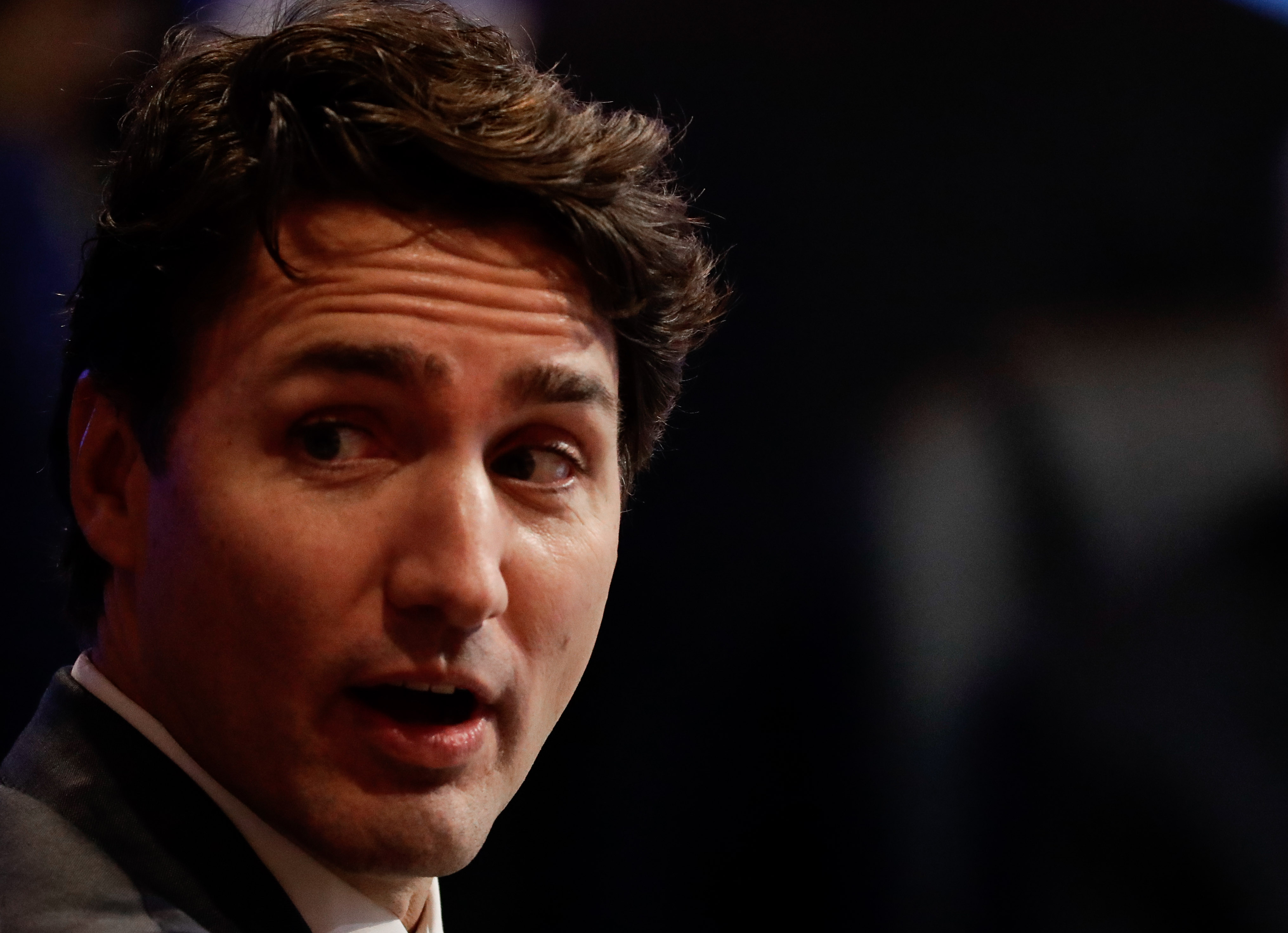Canadian Prime Minister Justin Trudeau is set to visit Beijing next week to discuss a possible free trade deal that would further China’s inroads into North American natural resource extraction. But such a deal threatens both Canada’s indigenous communities’ sovereignty and the environment, advocates say.
There’s no way to know what the trade deal to come out of next week’s meeting will entail until it’s signed and released to the public, warns Brenda Sayers, an activist for the rights of Canada’s indigenous First Nations; Ottawa continues to negotiate deals that are shrouded in secrecy, she charges. “You can’t really fight it until the deal has been signed, because you don’t know the content of the trade deals,” she says.
Still, it’s likely the deal will involve natural resources—those locked in Canadian oil sands, in which China already has a sizable footprint—marking Beijing’s latest attempt to enter the North American market. After the popular uprisings across the Middle East and North Africa hit Chinese energy investments in the region, it began, around 2012, to look elsewhere to more stable climes. A slew of new energy deals were signed with China’s neighboring, natural resource-rich nations, most notably Kazakhstan. And with the shale boom in North America, China also began to set its sights across the Pacific.
Sayers rose to prominence in 2012 when, together with her 300-person-strong Hupacasath First Nation, she helped spearhead a legal bid to block a previous deal with Beijing, called the Canada-China Foreign Investment Promotion and Protection Agreement (FIPA)—from protecting Chinese business interests in Canada. Among the FIPA’s terms, a Chinese enterprise can sue a Canadian provincial government for legislation found by an arbitrator to be prejudicial against its interests. In other words, if the Hupacasath or any other entity tried through legal means to block an extraction project it argues would harm their lands, the Chinese enterprise could sue their native British Columbia. And the enterprise and Canadian authorities would need to mutually agree to make information about the arbitration public, effectively barring civil society from organizing in response.
A Canadian federal court ultimately ruled against Sayers and the Hupacasath’s bid, and, in 2014, the administration of former Prime Minister Stephen Harper ratified the FIPA, set to last for 31 years. As it stands, if a Chinese company holds even a minority share in an extraction company, it can sue to halt any provincial government from enacting environmental regulations it feels would counter its interests. And Canadians may never know.
Sayers warns that Trudeau’s deal may serve to compact the environmental damage she believes is already being done by the Canada-China FIPA. “It’s kind of a layering effect. You have the Canada China FIPA—that gives them the right to buy into natural resource companies in China,” she says. “This would give China extra rights.”
Though the Hupacasath lost the legal battle, its fight represents a major flashpoint in an ongoing call by Canadian First Nations to safeguard their sovereignty over their lands.
Advocates for environmental justice contacted by Pacific Standard agree with Sayers that the process of negotiating trade deals often prioritizes the wrong stakeholders.
Paul Manly, an international trade critic for Canada’s Green Party, a party launched initially to fight in government for ecological justice among other issues, says international trade deals are negotiated in secret. “Civil society doesn’t know what’s in it until the T’s are crossed and I’s are dotted. They invite multinational corporations to the table to discuss what’s right for them,” he says.

(Photo: Ezra Acayan/AFP/Getty Images)
“I don’t know what they are negotiating with China right now, but I hope they can get a better deal than what’s been done in the past,” Manly adds, citing the FIPA as an example of a “terrible deal for Canada. “We need to be able to regulate on behalf of the people and the environment.”
Although the FIPA was ratified under the Harper administration, Manly has little faith the Trudeau administration will do any better, particularly after signing off on the Kinder Morgan bitumen pipeline—a project feverishly opposed by environmentalists in British Columbia, where Hupacasath lands are located.
Canadians more broadly have expressed skepticism that the pending China deal—the terms of which remain unclear—would protect Canadian industry and the interests of Canadian workers, the findings of a research panel that visited communities across the country showed, according to a report by Canada’s newspaper of record, The Globe and Mail.
Responding to resounding concern from the Canadian public, a spokesperson for Canadian Global Affairs—Ottawa’s foreign relations ministry—guaranteed that they would be included as stakeholders in those negotiations, following the panel’s findings.
“Canada is a trading nation and ensuring we have access to diverse and growing markets is more important than ever for Canadian businesses,” the spokesperson told Pacific Standard. “We are committed to pursuing progressive trade that benefits all Canadians, puts people first, and reflects our standards and values. There are still decisions to be taken but should we move forward, it would be the start of a long process and we will continue to consult closely with Canadians every step of the way.”
It remains to be seen whether the new trade deal will mark a departure from the trade deals of the past and guarantee protections for Canadian interests, with agreements like the Canada-China FIPA already in place.





